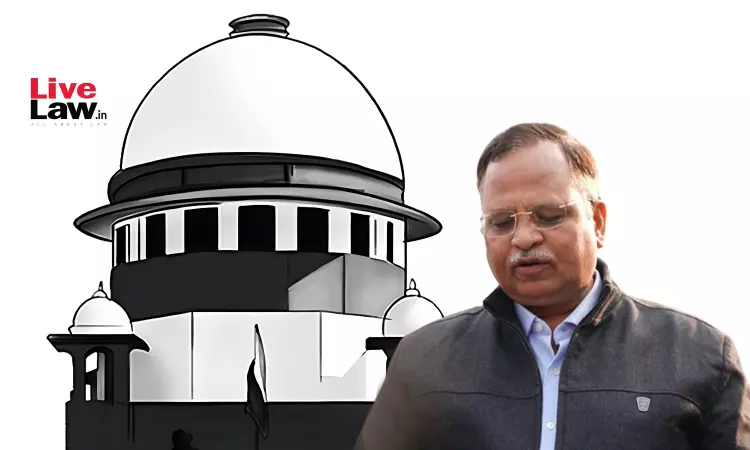Supreme Court Denies Bail To AAP Leader Satyendar Jain In Money Laundering Case, Asks Him To Surrender Forthwith
Awstika Das
18 March 2024 10:44 AM IST

Next Story
18 March 2024 10:44 AM IST
The Supreme Court on Monday (March 18) declined to grant bail to Aam Aadmi Party (AAP) leader Satyendar Jain in a money laundering case. It also cancelled the interim bail granted to him and asked Jain to surrender forthwith.Jain was arrested by the Enforcement Directorate (ED) in May 2022 on charges of money laundering under the Prevention of Money Laundering Act. He, along with others,...
